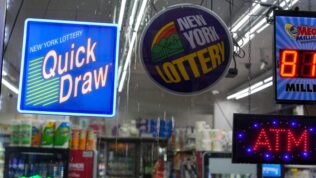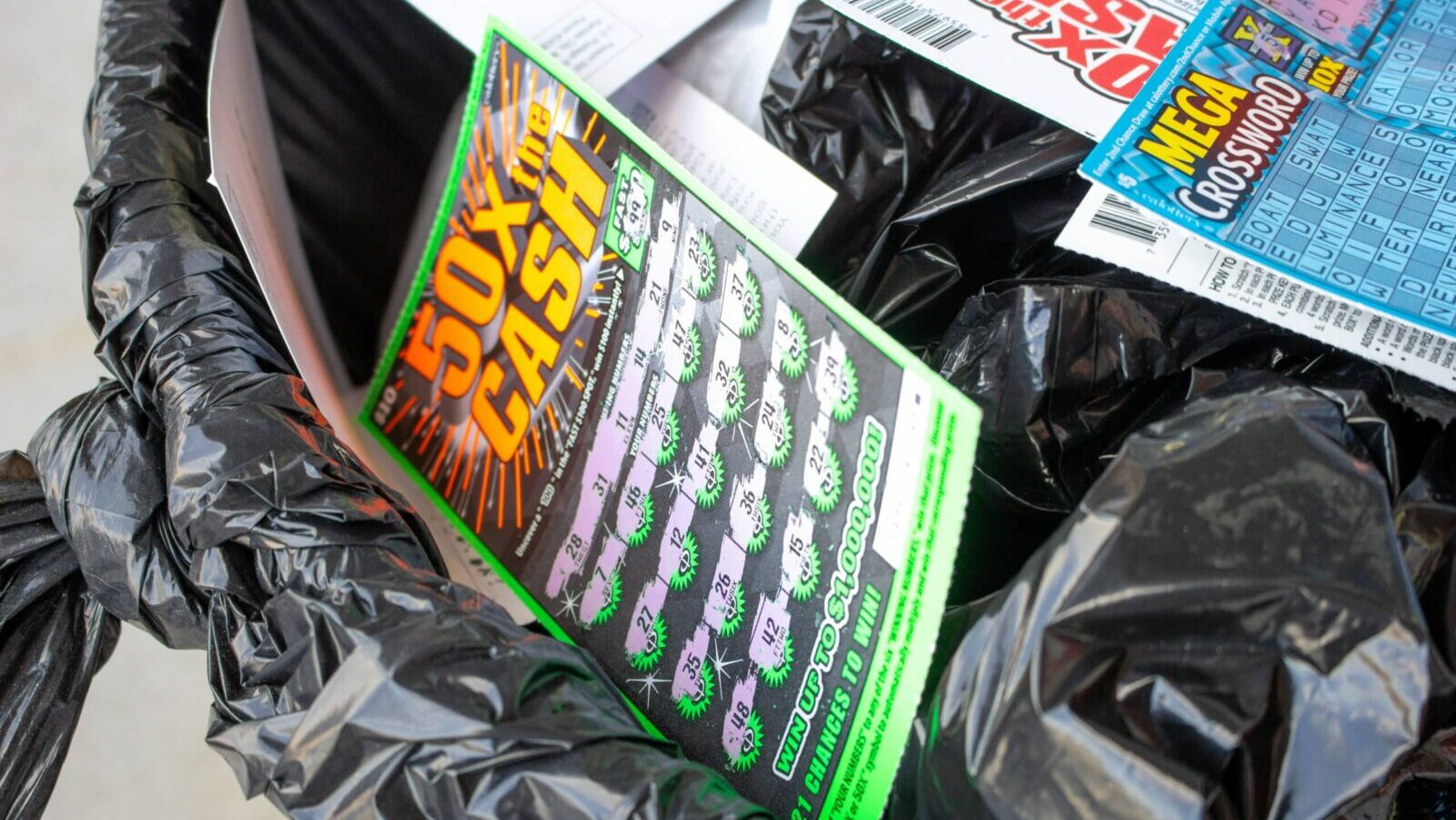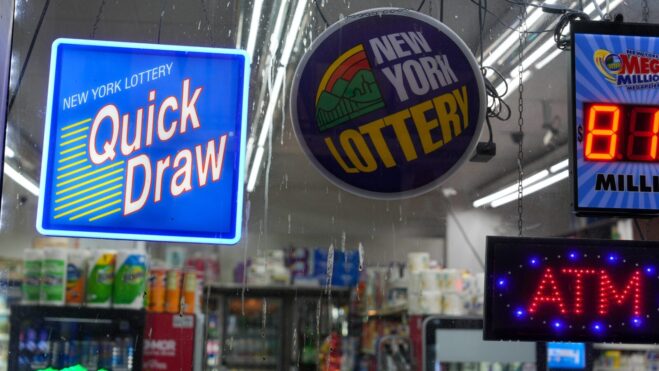Lottery Scams: How To Spot Them, How To Avoid Falling For Them
"For the love of all things good," a cybersecurity expert said, "please set up two-factor authorization on all your accounts."
5 min

Assuming you own a phone or a computer, you have probably received sketchy emails from random addresses claiming to be Amazon, been called by someone pretending to be from the IRS, or even had the pleasure of opening a phishing link on Facebook Messenger.
The fact of the matter is scams have become rampant in the digital world — especially since the start of the pandemic. The fraudsters who deploy these tactics always find a new angle to attempt to screw normal everyday people over.
And these days, that list of angles includes lottery scams.
With these lottery scams picking up pace over the last few months, particularly since the Powerball and Mega Millions jackpots surpassed the billion-dollar mark, Lottery Geeks decided to investigate them to learn how they work, what to look out for, and what a person should do if they fall victim to such fraud.
The 411 on modern-day scams
In a public service announcement released by the FBI in early 2024, the Bureau said it received a record number of complaints in 2023 — 880,418 in total, with potential losses exceeding $12.5 billion. According to the FBI, there was nearly a 10% increase in complaints, representing a 22% increase in losses compared to 2022. The majority of those losses came from fraud and scams.
No matter who they claim to be, scammers usually ask for cash, gold, wire transfers, prepaid cards, gift cards, and cryptocurrency.
Scammers typically try to target older, less technologically savvy individuals. However, with the advance of artificial intelligence, scammers have been able to cast a wider net. In fact, AI is getting so good that it can make scam emails look like the real deal to the average person.
Below is an AI-generated Amazon phishing email that has made the rounds. Some readers may have received it in the last few months.
Security experts are concerned about these sorts of emails. Eventually, phishing emails for other services will look just as convincing, leading to an increase in successful online crime.
What does a lottery scam look like?
Lottery scams can take various forms. Some scammers try to contact individuals through text messages, while others try their luck through email. Phone call scams were common in the late 2000s and early 2010s, but they have decreased. That said, if a person still has a landline phone and their number can be found in the Yellow Pages, they will likely receive scammy calls.
According to the experts Lottery Geeks spoke to, however, the likelier methods of interaction are social media, email, and text messages.
The below screenshots should give readers a better idea of what these scams will often look like.
The above is an example of an untrustworthy social media lottery scam. Meta and some other social media sites have been working on ways to crack down on these scams, but the results have been mixed. Lottery Geeks reached out to Meta for comment; representatives did not respond.
The above is an example of a lottery scam email from Australia that made the rounds in the late 2010s. Lottery Geeks has confirmed that similar emails are making the rounds in the United States. Common traits of these emails are that they are written in broken English and contain very little to no imagery.
The above scam has been popular for years. Similar to the Nigerian Prince scam emails and texts of years past, this scammer will try to phish the victim’s details from them.
As shown above, there is usually some sort of elaborate story. The scammers will try to extract such information as dates of birth, social security numbers, banking details, and more.
A Redditor who exchanged direct messages with Lottery Geeks and wished to remain anonymous shared details about the time a scammer tried to fleece their grandmother. The Redditor said the scammer told the grandmother she needed to pay taxes before she could receive her $10k prize money. Fortunately, that raised red flags, as the grandmother correctly assumed that, with lottery winnings, the taxes would be taken out of the final amount she was being given.
Knowing it was a scam but wanting to see the scammer’s preferred payment method, she stuck around. The scammer eventually ended up asking for iTunes cards.
With email scams, the perpetrators often ask for a specific prepaid card or for wire transfer/banking details. In addition, most scammers will apply tight deadlines to motivate the victim to meet their demands.
According to the research conducted by “ethical hacker” and cyber security specialist Falgun Rathod, once these scammers get a person’s info, they will usually look to take their money themselves or sell the victim’s data on the dark web to other cybercriminals.
Experts say the best rule of thumb is to not respond to anything that’s related to a product you haven’t actually purchased or applied for.
For example, if Mega Millions sends an email claiming the recipient has won $50k, but that person has not bought a Mega Millions ticket, rest assured that email is a scam. The advice is to not engage, and most certainly do not give out any information.
Instead, the recommendation is to contact whichever lottery provider the scammer alleges to represent, but through official channels like the lottery provider’s official website or toll-free phone number. The key is not to click any links in the email, call numbers the scammers provide, or reply to the email address they are given.
When speaking with the lottery provider through official channels, experts say to provide them with all the details. Those details should include screenshots of the message, the email address used for the scam, and anything else that might be applicable.
What to do if you’ve fallen for a lottery scam
Hanover Police Chief Chris Knoll in Ontario, Canada, recently shared that his officers have been getting a lot of complaints lately regarding lottery scams. He emphasizes that citizens should not engage, but if someone does happen to fall for a scam, make sure to contact the police, the bank, and government agencies, especially if the victim happened to give out their social security number. Quick action can help stop identity fraud from causing major problems.
If the scammer has already begun using the victim’s identity for nefarious purposes, the victim may have to take more serious measures — such as seeking the assistance of a lawyer.
That said, not all lottery scams are the same. Sometimes, the scammers just want money in the form of prepaid cards and do not ask for information like home addresses, dates of birth, and more sensitive details.
Even in those cases, it is still a good idea for the victim to change their security settings on all their accounts. “For the love of all things good,” a cybersecurity expert told Lottery Geeks, “please set up two-factor authorization on all your accounts, including your most vulnerable ones like your main email, your online banking, and anything else that has sensitive information.”
The consensus is that two-factor authorization can prevent harmful hacks. As the cybersecurity expert told Lottery Geeks, most scammers will not find it worth their time to go through all the extra steps to breach something with two-factor authorization.
Another suggestion shared by experts is to use the “too good to be true” rule: If, for whatever reason, something sounds too good to be true, it probably is.
Most online platforms like iLottery services will have put the customer through a KYC verification process when they first signed up and will not need any more information. Those providers will not be asking for more details out of the blue.
The best rule of thumb is to always be cautious and vigilant online.
The unfortunate reality is that these scams will always be around. Even if the Department of Justice prosecutes a bunch of these fraudsters on a federal level and levies harsh penalties, other scammers will take their place and the cycle will continue.









